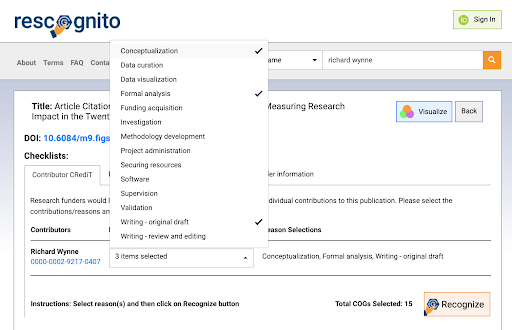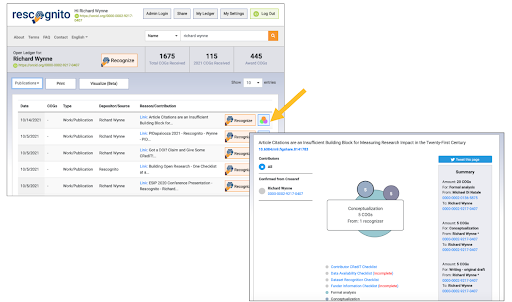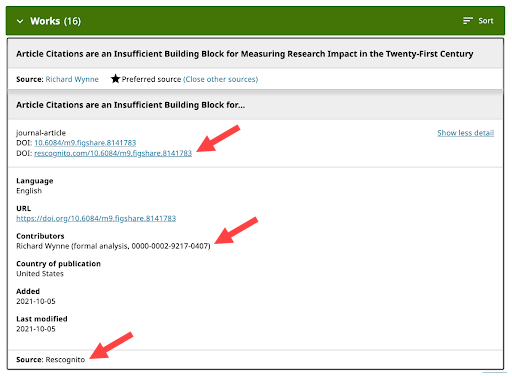ORCID welcomes this guest post by Richard Wynne (https://orcid.org/0000-0002-9217-0407) who has worked at the intersection of scholarly publishing and technology for more than 35 years. In 2019, he founded Rescognito, an innovative platform for structured, granular, and verifiable attribution of Open Research contributions. Previously he was a principal and Vice President of Sales and Marketing at Aries Systems for 20 years. The Aries Editorial Manager platform is successfully used by millions of researchers and thousands of journals for online submission and peer review. Aries was acquired by RELX at the end of 2018. Richard holds a degree in Business and Law from the University of Edinburgh.
A free service for recognizing and promoting Open Research, Rescognito is the first ORCID Member to implement CRediT (Contributor Roles Taxonomy) roles for research contributors using the ORCID API.
One of ORCID’s strategic initiatives is to reduce the effort that researchers need to invest in to complete and update their ORCID records. In furtherance of this objective, we introduced support for the CRediT taxonomy earlier in 2021. CRediT is a widely adopted NISO standard comprised of 14 contribution types so researchers can be credited for all their unique contributions to scholarly output.
Early Adopter
The first adopter of ORCID’s CRediT functionality is Rescognito, an ORCID Member organization that has—with researcher permission—enabled contributor roles (e.g., Conceptualization, Methodology, Investigation, etc.) to be pushed into ORCID records.
Using Rescognito, researchers can assert contribution terms for any publication with a Digital Object Identifier (DOI) listed in their ORCID record. To ensure verifiable attribution, Rescognito requires authors to first validate their ORCID iD.

CRediT assertions are recorded in the researcher’s Rescognito Open Ledger and can be visualized by clicking the buttons indicated below:

Researchers using Rescognito can now also choose to “push” these CRediT attributions directly to their ORCID records by selecting this option in their Rescognito “settings.”

This is what it looks like in ORCID:

An agile, cost-effective way to for journals to implement CRediT
Richard Wynne, founder of Rescognito, commented: “Rescognito is an agile and cost-effective way for journals to implement CRediT without disrupting or delaying traditional manuscript workflows. Thanks to the ORCID API, all attributions are fully authenticated and transparent. CRediT can even be claimed for previously published manuscripts or preprints. We are working with customers such as World Scientific publishers to deploy this workflow to early adopter journals.”
Using Rescognito, researchers can assert contribution terms for any publication with a Digital Object Identifier (DOI) listed in their ORCID record. To ensure verifiable attribution, Rescognito requires authors to first validate their ORCID iD. To see Rescognito in action, please take a moment to view this quick instructional video.
